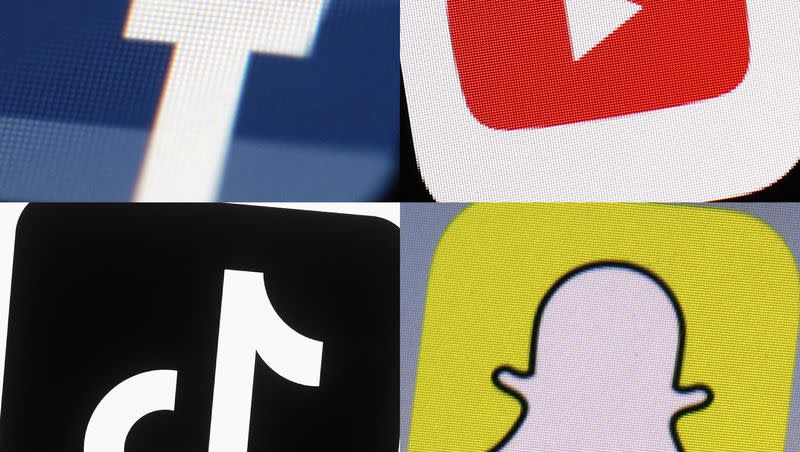Children ‘in droves’ are ‘addicted,’ New York City sues social media companies

- Oops!Something went wrong.Please try again later.
New York City Mayor Eric Adams announced the city’s suit against major online platforms including Facebook, TikTok, Instagram, YouTube and Snapchat in a press conference Wednesday.
“Over the past decade, we have seen just how addictive and overwhelming the online world can be, exposing children to content they are not ready for,” Adams said, adding, “There is growing evidence that the power of social media is a major cause” of the mental health crisis.
Adams said the city filed a suit after seeing the alleged harms of social media.
“New York City, like other parts of this nation, is battling an unprecedented mental health crisis among its youth and serious disruption to the public health, fueled by defendants’ creation and promotion of addictive and dangerous social media platforms,” the suit alleges. “Youth are now addicted to defendants’ platforms in droves, resulting in substantial interference with school district operations and imposing a large burden on cities, school districts and public hospital systems that provide mental health services to youth.”
Snapchat issued a statement to ABC News in response to the suit. “Snapchat was intentionally designed to be different from traditional social media, with a focus on helping Snapchatters communicate with their close friends. Snapchat opens directly to a camera — rather than a feed of content that encourages passive scrolling — and has no traditional public likes or comments. While we will always have more work to do, we feel good about the role Snapchat plays in helping close friends feel connected, happy and prepared as they face the many challenges of adolescence.”
A spokesperson for Meta, which operates Facebook and Instagram, told ABC News, “We want teens to have safe, age-appropriate experiences online, and we have over 30 tools and features to support them and their parents. We’ve spent a decade working on these issues and hiring people who have dedicated their careers to keeping young people safe and supported online.”
Google, which owns YouTube, also responded to the suit in a statement to ABC News, “Providing young people with a safer, healthier experience online has always been core to our work. In collaboration with youth, mental health and parenting experts, we’ve built services and policies to give young people age-appropriate experiences, and parents robust controls. The allegations in this complaint are simply not true.”
A spokesperson for TikTok told ABC News about the suit, “TikTok has industry-leading safeguards to support teens’ well-being, including age-restricted features, parental controls, an automatic 60-minute time limit for users under 18, and more. We regularly partner with experts to understand emerging best practices, and will continue to work to keep our community safe by tackling industry-wide challenges.”
The New York City plaintiffs claim the defendants were negligent by “designing their social media platforms to maximize the amount of time users spend on the platform and causing excessive and problematic use of their platforms, particularly among youth, through the use of algorithm-based feeds, social reciprocity, and IVR.” IVR is a term for intermittent variable rewards.
Related
Utah’s lawsuit against TikTok contains startling allegations
As Zuckerberg apologizes in hearing, Utah suit alleges Meta knew its apps harm children
The plaintiffs are seeking relief through funding for mental health treatment, compensatory damages, punitive damages and an order that the defendants are found jointly and severally liable.
“This is about protecting our young people,” City Hall Chief Counsel Lisa Zornberg said in a release. “The U.S. surgeon general was right to say this is ‘just not a fair fight.’ The best product developers in the world have designed addictive feeds and features to maximize the amount of time young people spend on the platform — leaving parents, young people, teachers, and emergency rooms to deal with the harmful consequences. Real relief is needed and real change from the social media companies is long past due.”
New York City’s suit against the social media companies is unique in that states have been the ones typically filing complaints.
Forty-one states and D.C. filed a federal complaint claiming that Meta harms children through allegedly addictive features on the app such as infinite scroll, push notifications and “dopamine-manipulating recommendation algorithms.”
The complaint alleges that “despite the strong and well-researched links between young people’s use of Meta’s Social Media Platforms and psychological and physical harm, Meta has continued to conceal and downplay its platforms’ adverse effects.”
Utah has also filed suits: one against Meta and one against TikTok.

